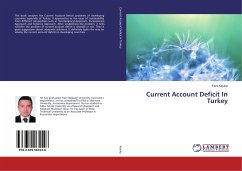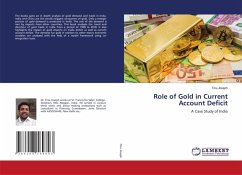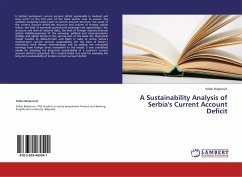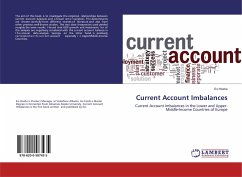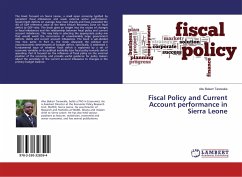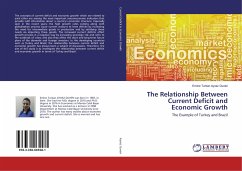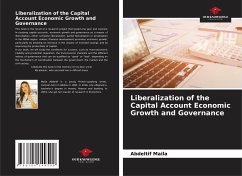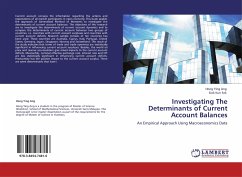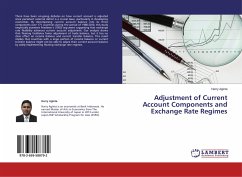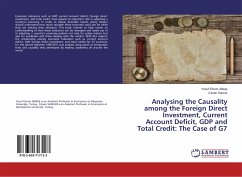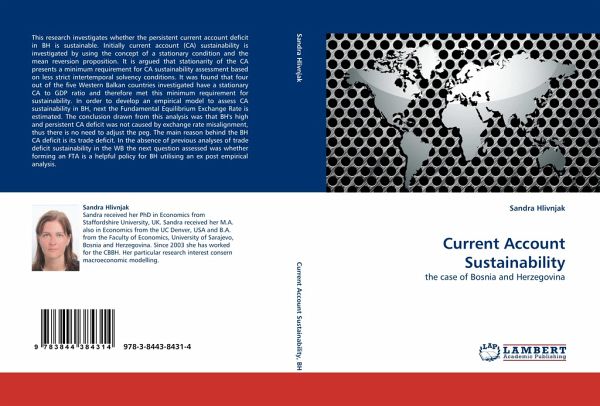
Current Account Sustainability
the case of Bosnia and Herzegovina
Versandkostenfrei!
Versandfertig in 6-10 Tagen
52,99 €
inkl. MwSt.

PAYBACK Punkte
26 °P sammeln!
This research investigates whether the persistent current account deficit in BH is sustainable. Initially current account (CA) sustainability is investigated by using the concept of a stationary condition and the mean reversion proposition. It is argued that stationarity of the CA presents a minimum requirement for CA sustainability assessment based on less strict intertemporal solvency conditions. It was found that four out of the five Western Balkan countries investigated have a stationary CA to GDP ratio and therefore met this minimum requirement for sustainability. In order to develop an e...
This research investigates whether the persistent current account deficit in BH is sustainable. Initially current account (CA) sustainability is investigated by using the concept of a stationary condition and the mean reversion proposition. It is argued that stationarity of the CA presents a minimum requirement for CA sustainability assessment based on less strict intertemporal solvency conditions. It was found that four out of the five Western Balkan countries investigated have a stationary CA to GDP ratio and therefore met this minimum requirement for sustainability. In order to develop an empirical model to assess CA sustainability in BH, next the Fundamental Equilibrium Exchange Rate is estimated. The conclusion drawn from this analysis was that BH's high and persistent CA deficit was not caused by exchange rate misalignment, thus there is no need to adjust the peg. The main reason behind the BH CA deficit is its trade deficit. In the absence of previous analyses of trade deficit sustainability in the WB the next question assessed was whether forming an FTA is a helpful policy for BH utilising an ex post empirical analysis.



